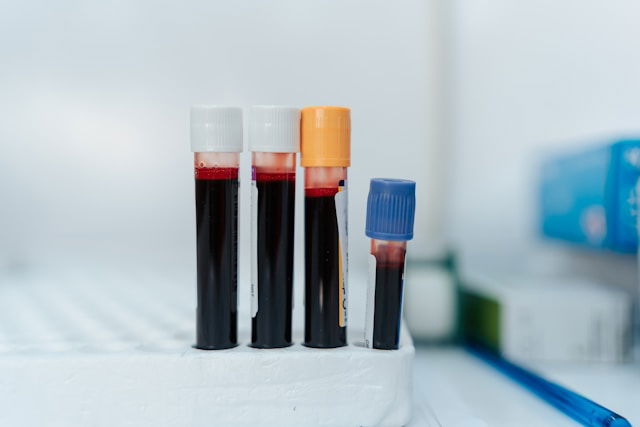
Early detection of cancer can save lives, especially for liver cancer, which is usually found at a late stage when treatment options are limited.
A new study led by researchers from Mass General Brigham and Beth Israel Deaconess Medical Center suggests that proteins found in the blood may help predict liver cancer years before it is normally diagnosed.
The study, published in the Journal of the National Cancer Institute (JNCI), shows that certain protein markers in the blood could identify people at risk for liver cancer much earlier than current methods allow. This discovery could be life-changing for people in high-risk groups such as those with cirrhosis or hepatitis.
Liver cancer, also called hepatocellular carcinoma (HCC), is the third leading cause of cancer deaths worldwide. In the U.S., its incidence has nearly tripled since the 1980s. Because the disease is usually caught at an advanced stage, survival rates are low, with most patients living less than a year after diagnosis.
To improve early detection, the researchers used a technique called proteomics, which measures the levels of proteins in the blood. Using the SomaScan Assay Kit, they were able to measure over 1,300 different proteins at once. This advanced technology allowed them to detect even very low levels of proteins that could indicate early stages of liver cancer.
Dr. Xinyuan (Cindy) Zhang, the study’s lead author, said the goal is to catch liver cancer early enough to treat it effectively with surgery or even a liver transplant. Dr. Towia Libermann, another senior researcher, explained that this approach offers new insights into how liver cancer develops and may even lead to new treatment options.
The team examined blood samples from two major long-term U.S. studies: the Nurses’ Health Study and the Health Professionals Follow-Up Study. In these studies, they looked at samples from people an average of 12 years before they were diagnosed with liver cancer. They then confirmed who actually developed the disease by checking medical records.
The researchers found 56 proteins in the blood that were higher in people who later developed liver cancer. From this group, they selected four proteins to build a model to predict liver cancer risk.
They then tested this model using a large dataset from the UK Biobank, which included 50,000 people. The model correctly identified individuals at risk for liver cancer better than traditional risk factors like age, sex, and lifestyle.
Although the study involved a relatively small number of liver cancer cases, the results are promising. The researchers are now working on expanding their approach using a newer SomaScan test that can measure up to 11,000 proteins.
They also plan to look for markers of other types of cancer and better understand how liver cancer risk varies across different groups of people.
This research could lead to the development of a simple blood test to screen for liver cancer before symptoms appear. Such a test would be especially useful for people at high risk and could make early, potentially life-saving treatment possible.
If you care about liver health, please read studies about simple habit that could give you a healthy liver, and common diabetes drug that may reverse liver inflammation.
For more information about health, please see recent studies about simple blood test that could detect your risk of fatty liver disease, and results showing this green diet may strongly lower non-alcoholic fatty liver disease.
The study is published in JNCI: Journal of the National Cancer Institute.
Copyright © 2025 Knowridge Science Report. All rights reserved.



